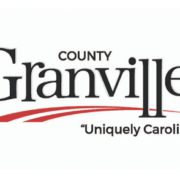TownTalk: Granville County Spicing Things Up For September
If you’ve driven around downtown Oxford recently, perhaps you’ve noticed the street decorations and banners that have been installed, creating a festive atmosphere to usher in the 19th annual N.C. Hot Sauce Contest and Festival.
Granville County Tourism Director Angela Allen said this is the second year that the hot sauce festival will be a two-day affair, with evening music and other activities kicking off on Friday, Sept. 12 from 6 p.m. to 9 p.m.
Saturday, Sept. 13 is a full day of all-things-hot-sauce, from 10 a.m. to 8 p.m., Allen said on Tuesday’s TownTalk.
“Things are getting hot and spicy in downtown Oxford,” she said.
More than 300 vendors will be set up throughout downtown to share samples of their sauces, rubs, jams, jellies and more that they’ve created with peppers. “It’s a foodie paradise,” Allen said.
Some vendors have participated 15 years or more, and they’ll set up their tents and tables alongside others who may be new or nearly new to the experience. They come from all over the state and elsewhere to share their creations with pepper enthusiasts who like a little – or a lot – of kick in their salsas and sauces.
Peppers may take center stage for the host sauce festival, but pumpkins are also a favorite for fall.
In addition to Cedar Creek Gallery’s glass pumpkin patch in the front gallery on exhibit through October, there are a couple of harvest festivals that will be popping up across the county for folks to get their fall “fix.”
- Sept. 14 – Carlee Farms Harvest Festival, hosted by Kissing Booth boutique. More than 25 vendors will have fashion, homemade crafts, seasonal décor and treats available
- Sept. 27 – Harvey Hills Farm’s Harvest Days each weekend through Oct. 26. Festive vendor market featuring fall produce, décor, pumpkins and mums
- Sept. 27 – Indian Branch Farm hosting Roots and Rows from 9 a.m. to 4 p.m. with more than 65 vendors featuring fashion, home décor, seasonal treats and more
Allen said farm festivals provide authentic experiences for people to meet farmers and craftspeople responsible for things we eat and things we put in our homes.
“It’s really awesome to go into these festivals and meet the people that actually make these things,” she said.
But it’s not all hot sauce and fall festivals in Granville County, she said. The city of Oxford has recently renamed the auditorium located in City Hall, and “The Ox” is set to host a varied lineup of live entertainment and performances through fall and into December.
The Granville Arts Council is bringing Red Bird Theater back, this time for a production of the play Revolution, on Saturday, Sept. 6 at 7:30 p.m
Then, on Sept. 10, it’s “The Bad Moms of Comedy,” with a 7:30 performance.
Beach music fans will be happy to know that The Drifters are set to perform on Nov. 1 and then there are a couple of Christmas shows scheduled – Dec. 1 it’s Celtic Angels and Dec. 14 Nashville Nöel.
Check out https://visitgranvillenc.com/ to learn about all the events taking place across Granville County.
CLICK PLAY!










